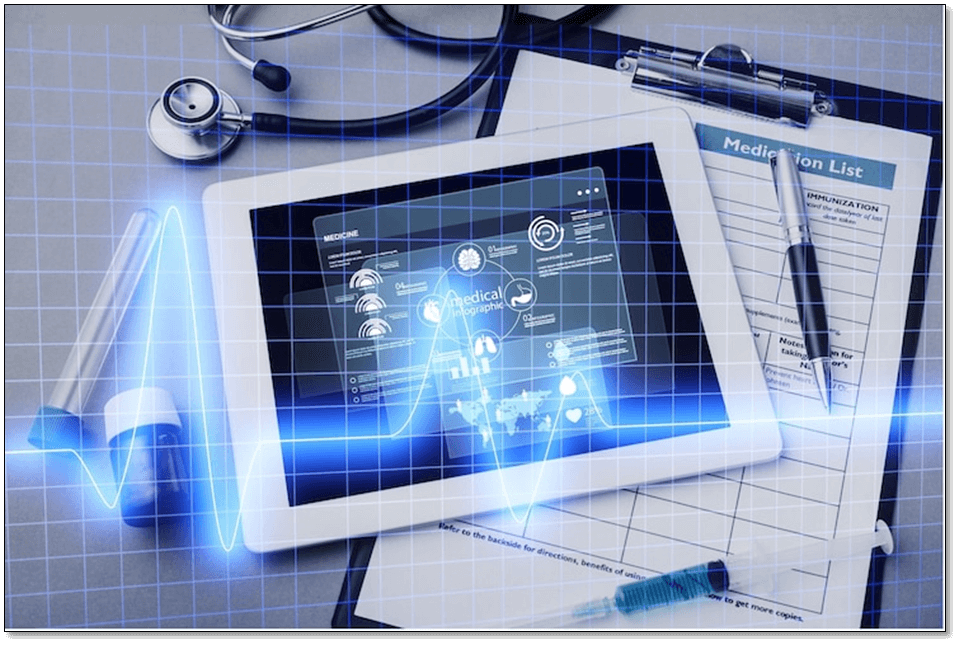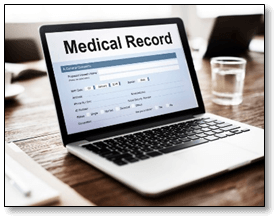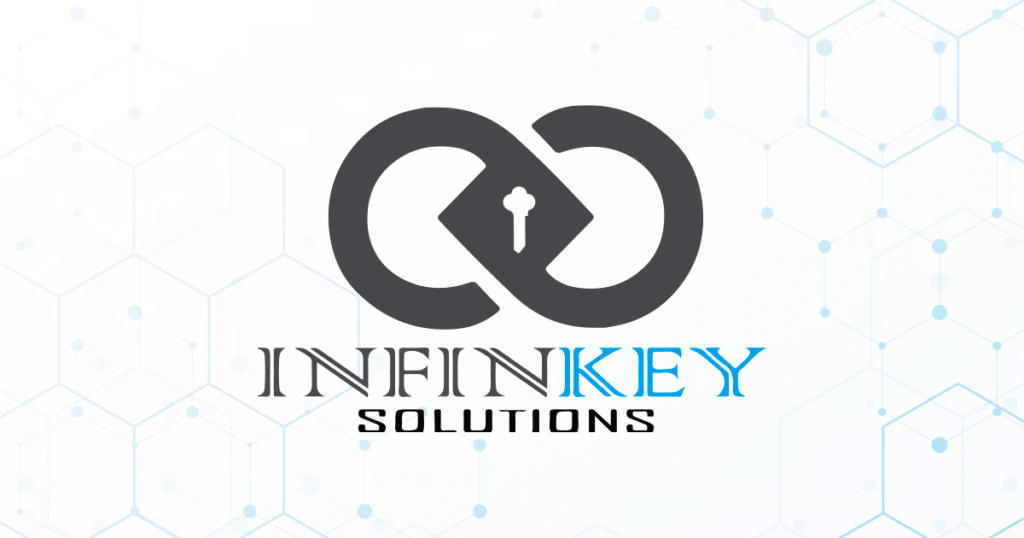What is a Hospital Management System?
A Hospital Management System (HMS) is a software solution that helps hospitals and healthcare centers manage their daily operations smoothly. It keeps track of patients, doctors, staff, appointments, billing, and much more all in one place. Traditionally, hospitals used to manage their records and processes manually, which often led to errors, miscommunication, and delays. HMS replaces this old method with an automated system that helps the hospital run smoothly, efficiently, and transparently.

The main goal of an HMS is to make hospital operations more efficient, reduce paperwork, avoid errors, and save time for both medical staff and patients. This not only speeds up the daily tasks but also ensures that important information is always at the fingertips of the right people, like doctors, nurses, administrators, or lab technicians.
Automation and Integration
HMS automates routine tasks such as:
- Patient Registration
- Appointment booking
- Billing and payments
- Report generation
By automating these processes, hospitals can focus more on providing quality care to patients instead of spending time on paperwork and manual management.
Key Features of Hospital Management System

Patient Management
The system keeps a complete and organized record of every patient. This includes their details, medical history, allergies, ongoing treatments, and test results. It makes registering new patients quick and easy while allowing doctors and nurses to instantly access patient information whenever needed. This ensures better diagnosis and more accurate treatment for every patient.
Appointment Scheduling
With HMS, patients can book their appointments easily, either online or directly at the hospital. The system helps doctors manage their schedules by keeping track of all upcoming consultations. It also sends automatic reminders to patients about their appointments, which helps reduce the number of missed visits and keeps the patient flow organized and efficient.
Billing and Payment Management
The billing process becomes much simpler with an HMS. It handles everything from consultation fees to treatment charges and lab tests, making sure the process is quick and error-free. The system supports various payment methods such as cash, card, and even online payments or insurance claims. This ensures transparency in billing, minimizes errors and speeds up the payment process for patients.
Inventory and Pharmacy Management
HMS keeps a close eye on the hospital’s inventory, including medicines, medical equipment, and other necessary supplies. It automatically alerts the staff when stock levels are running low or when products are nearing their expiry dates. This helps avoid shortages and ensures that essential medical supplies are always available for patient care.
Staff and HR Management
The system maintains complete records of all hospital staff, from doctors and nurses to administrative and support teams. It tracks attendance, work shifts, leave requests, and payroll information. This feature helps hospital management assign duties effectively and ensure that all departments have the staff they need at the right time.
Laboratory and Test Management
HMS manages laboratory tests efficiently by recording test requests and maintaining clear records of results. Test reports are directly linked to the patient’s profile, allowing doctors to access them without any delay. This speeds up the diagnostic process and reduces the chances of lost or misplaced reports, leading to faster and more accurate treatment.
Operation Theatre (OT) Management
The system helps manage the scheduling of surgeries and the availability of the operation theatre. It keeps track of surgical equipment, ensures sterilization procedures are followed, and manages the assignment of surgical teams. This feature is essential for maintaining the safety, organization, and efficiency of surgical operations.
Report Generation and Analytics
HMS can automatically generate detailed reports about hospital operations, patient care, finances, and staff performance. These reports help hospital administrators make informed decisions, improve services, and identify areas that need attention. With clear analytics, the hospital can continuously enhance its overall performance.
Benefits of a Hospital Management System
- Automates routine administrative tasks like patient registration, appointment scheduling, and billing, reducing manual errors and improving workflow efficiency, allowing staff to focus more on patient care.
- Integrates various hospital departments, enabling real-time access to data, improving collaboration, minimizing communication gaps, and ensuring that all aspects of patient care are coordinated smoothly.
- Provides healthcare providers with real-time access to patient data, enabling quicker and more informed decision-making, leading to better diagnosis, treatment, and improved patient outcomes.
- Reduces the chances of human error in managing patient records, prescriptions, and billing, ensuring more accurate patient care and financial transactions.
- Helps hospitals comply with healthcare regulations by securely storing and managing patient data, reducing the risk of legal issues related to data mishandling.
- Tracks inventory, medications, and supplies in real-time, preventing stockouts or overstocking, and ensures efficient use of hospital resources, contributing to better cost control.
- Improves patient satisfaction and retention by streamlining the appointment scheduling process, sending automatic reminders, and speeding up check-ins and billing, creating a smoother experience.
- Scales easily accommodate growing hospitals, ensuring efficient management of more patients, departments, and locations without compromising service quality.
- Generates detailed reports and analytics on various metrics like patient flow, financial performance, and staff productivity, providing valuable insights for data-driven decision-making.
- Ensures accurate billing for services, improves the management of insurance claims, and reduces errors and disputes, leading to better financial transparency.
- Allows central access to patient records, schedules, and financial data across multiple hospital locations, improving coordination and service delivery between branches.
Hospital Management System Types and Their Purpose
1. Integrated Hospital Management System
Purpose: All-In-One Management Solution
An integrated HMS combines all the core functions of a hospital into a single system. It brings together multiple modules—like patient registration, billing, pharmacy, lab, and administration—into one cohesive platform. The primary goal is to provide a comprehensive solution that handles all hospital operations in one place.
This system ensures that all departments communicate effectively, share data in real time, and access patient records, financial data, and treatment plans quickly. The integration of data from different departments minimizes errors and ensures smooth operations, leading to better patient care and quicker decision-making.
2. Clinical Hospital Management System
Purpose: Focused on Patient Care and Clinical Functions
A clinical HMS focuses primarily on patient care and clinical operations. It includes features for managing patient records, treatment histories, medical prescriptions, diagnostic tests, and clinical workflows. This type of HMS is used mainly by doctors, nurses, and other healthcare professionals who are directly involved in patient care.
The system helps healthcare providers track and monitor patient conditions, plan treatments, and maintain accurate medical histories. It streamlines clinical processes, enhances treatment accuracy, and ensures that healthcare providers have up-to-date and complete information when treating patients.
3. Administrative Hospital Management System
Purpose: Streamlining Administrative Tasks
An administrative HMS focuses on the management of the hospital’s non-clinical functions, such as billing, human resources, inventory management, and finance. This type of system is tailored to support administrative staff by automating routine tasks like employee scheduling, payroll processing, and supply chain management. What is an API? A Simple Guide to Understanding
By centralizing administrative tasks, this HMS ensures smoother hospital operations, reduces manual errors, and improves overall efficiency in areas that do not directly involve patient care. It is particularly useful for managing the business side of healthcare organizations.
4. Financial Hospital Management System
Purpose: Efficient Financial Management
A financial HMS specializes in managing the financial aspects of a hospital, including billing, insurance claims, accounting, and budgeting. This type of system is crucial for tracking hospital expenses, and revenue, and ensuring accurate billing processes for both patients and insurance companies.
The system helps improve cash flow management, reduces billing errors, and accelerates the reimbursement process from insurance providers. It also supports the hospital’s financial decision-making by generating reports on income, expenses, and profitability.
5. Laboratory Hospital Management System
Purpose: Managing Laboratory Operations
A laboratory HMS is specifically designed to handle laboratory processes such as test management, results tracking, and inventory control. It allows lab technicians to input and access test results, track patient samples, and manage the inventory of lab supplies.
This type of HMS improves laboratory efficiency by automating testing workflows, reducing errors in test results, and ensuring that laboratory data is stored securely and can be accessed quickly when needed. It also helps hospitals maintain high standards of laboratory quality control.
6. Pharmacy Hospital Management System
Purpose: Managing Pharmaceutical Operations
The pharmacy HMS is focused on managing all pharmacy-related activities in a hospital, such as medication inventory management, prescription tracking, and the dispensing of medicines. It ensures that the hospital’s pharmacy runs smoothly, accurately, and efficiently.
With this system, hospital pharmacies can maintain proper stock levels, automate prescription dispensing, and track medication usage and expiry dates. It helps prevent medication errors, ensures the availability of essential drugs, and improves patient safety by managing prescriptions effectively.
7. Patient-Centric Hospital Management System
Purpose: Enhancing Patient Experience and Engagement
A patient-centric HMS is designed to enhance the experience and engagement of patients. It focuses on improving communication between patients and healthcare providers, allowing patients to book appointments online, view their medical history, track their treatment progress, and receive reminders for medication or follow-up appointments.
This system empowers patients by providing them with easy access to their healthcare information, improving their overall experience at the hospital. It helps create a more personalized healthcare journey, making patients feel more informed and in control of their treatment.
8. Mobile-Based Hospital Management System
Purpose: Flexible Access for Healthcare Providers
A mobile-based HMS offers flexibility by allowing hospital staff to access the system via mobile devices like smartphones and tablets. It is especially useful for healthcare professionals who need to access patient data and manage tasks remotely or while moving around the hospital.
This system ensures that doctors, nurses, and administrative staff can stay connected and informed about patient conditions, appointments, and medical records at all times, regardless of their physical location in the hospital. It enhances communication and workflow efficiency for healthcare providers on the go.
9. Cloud-Based Hospital Management System
Purpose: Remote Access and Scalability
A cloud-based HMS allows hospital data and operations to be managed and accessed over the Internet, providing flexibility for healthcare organizations to store data remotely and access it from any location. It is especially beneficial for hospitals with multiple branches or those that need to scale their operations without investing heavily in infrastructure.
Cloud-based systems offer the advantage of lower upfront costs, regular software updates, and the ability to scale according to the hospital’s needs. It also enhances data security, as cloud providers often have robust security measures in place to protect sensitive information.
What Types of Data Does the Hospital Management System Process?
Patient Data
HMS handles essential patient-related data, including personal information (name, age, gender, contact details), medical history, allergies, treatment plans, prescriptions, and test results. This data is crucial for providing personalized healthcare and ensuring continuity of care across different healthcare providers.

Medical Records
This includes detailed documentation of patient conditions, diagnoses, treatments, surgeries, medications, and progress over time. Electronic Health Records (EHR) or Electronic Medical Records (EMR) are commonly stored in the system to ensure quick and secure access by doctors and nurses during patient visits.

Appointment and Scheduling Data
HMS processes data related to patient appointments, such as the date, time, healthcare provider, and reason for the visit. It ensures that appointments are scheduled, rescheduled, and tracked efficiently, allowing patients to see the right healthcare providers at the right time.
Billing and Payment Information
The system handles financial data, such as patient billing information, insurance details, payment records, and transaction history. It automates the process of billing for services rendered, helps generate invoices, tracks payments, and ensures proper management of insurance claims and reimbursements.
Inventory and Supply Data
HMS tracks the inventory of medical supplies, pharmaceuticals, and equipment used in the hospital. It monitors stock levels, expiration dates, and usage rates, ensuring that the hospital is always well-equipped and that resources are used efficiently without waste.
Staff and Human Resource Data
Data related to hospital staff, including doctors, nurses, administrative personnel, and support staff, is managed by the HMS. This includes staff personal details, work schedules, payroll, performance evaluations, and certifications. It helps streamline staffing and ensures efficient workforce management.
Laboratory Test Data
For hospitals with an in-house laboratory, HMS processes data related to lab test requests, results, and patient history. This data is essential for diagnosing illnesses, tracking patient progress, and updating treatment plans based on lab results. It ensures that all test data is easily accessible and linked to the correct patient records.
Pharmacy Data
The HMS processes pharmacy-related data, including prescriptions, medication inventory, drug usage, and dispensing records. It ensures that the hospital’s pharmacy operates efficiently, tracking the stock levels of medications, and automating the prescription process to avoid errors in medication dispensation.
Patient Discharge and Follow-Up Data
When a patient is discharged, the HMS processes discharge summaries, follow-up care instructions, and referrals for future treatments. It also helps schedule follow-up appointments and sends reminders to patients about post-discharge care and medication regimens.
Operational and Performance Data
HMS collects and processes data on hospital operations, such as patient admission rates, treatment times, room occupancy, staff performance, and hospital revenue. This data is used for operational management and strategic decision-making, helping hospitals optimize resources and improve overall performance.
Regulatory and Compliance Data
Hospitals need to comply with various healthcare regulations, such as HIPAA (Health Insurance Portability and Accountability Act) or local health standards. HMS processes and stores data related to patient privacy, consent forms, and compliance checks to ensure that the hospital is meeting legal and regulatory requirements.
Patient Feedback and Satisfaction Data
HMS also collects data related to patient satisfaction, feedback, and surveys. This data helps the hospital assess the quality of care and make improvements to patient experience and service delivery.
Want to Develop Your Hospital Management Software?
Developing your own Hospital Management Software (HMS) is a significant step toward streamlining your hospital’s operations and improving patient care. Whether you are a small clinic or a large hospital network, having a custom-built HMS allows you to have a tailored solution that meets your specific needs, ensuring better efficiency, data security, and overall healthcare service delivery.
How Infinkey Solutions Can Help You Develop Your HMS
At Infinkey Solutions, we specialize in building robust and scalable Hospital Management Software that is fully customized to meet the unique needs of your healthcare facility. Our team of expert developers and consultants work closely with you to create an efficient, secure, and user-friendly system designed to optimize every aspect of hospital management. Here’s how we can help:

Our HMS Development Services
- Custom Software Development
- User-Centric Design
- System Integration
- Real-Time Analytics and Reporting
- Data Security & Compliance
- Mobile and Cloud Solutions
- Ongoing Maintenance and Support
Here’s why we are the right partner for your HMS development:
Our team of skilled developers has extensive experience in building customized software solutions for healthcare facilities. As your hospital grows, so does our software. We ensure that the software integrates smoothly with your existing systems, such as EHRs, inventory management, and billing software.
We offer cost-effective solutions with flexible pricing models to suit your budget. Whether you’re a small clinic or a large hospital, we provide solutions that offer great value for your investment.
If you’re ready to take your hospital operations to the next level with tailored Hospital Management Software, Infinkey Solutions is here to help. Contact us today to get started and let us help you build a system that improves operational efficiency, patient care, and hospital performance.
If You’re Just Getting Started — Consider Free HMS Options
While building a custom HMS is an excellent long-term solution, if you’re just starting and want to explore how an HMS works, there are also free Hospital Management Systems available. These free platforms provide basic functionality like patient management, appointment scheduling, and billing to help you understand the benefits of digitizing your hospital operations.
They are a great way to get familiar with how hospital management software can support your daily processes — and once you outgrow them, you’ll have a clear roadmap for developing your advanced system in the future. here are some options to consider:
- OpenEMR
- HospitalRun
- Open Hospital
- GNU Health
- Bahmni
- OpenMRS
- FreeMED
- OSCAR EMR
- Danphe EMR
- Caspio Hospital Management Software
Exploring these free HMS options can provide valuable insights into the functionalities and benefits of hospital management systems, helping you make informed decisions as you consider developing a custom solution tailored to your facility’s needs.
Ready to Transform Your Hospital Operations? Get Your Free HMS Consultation Today!






